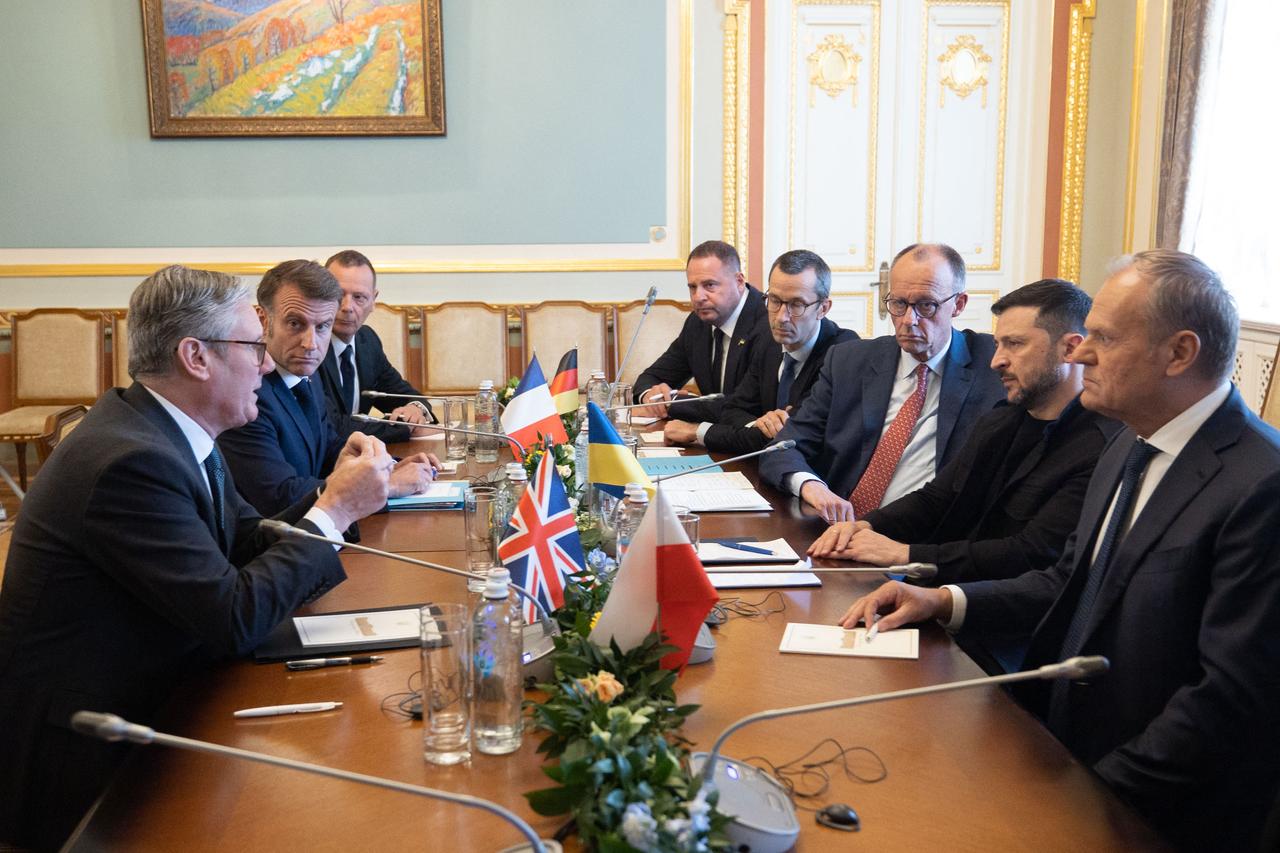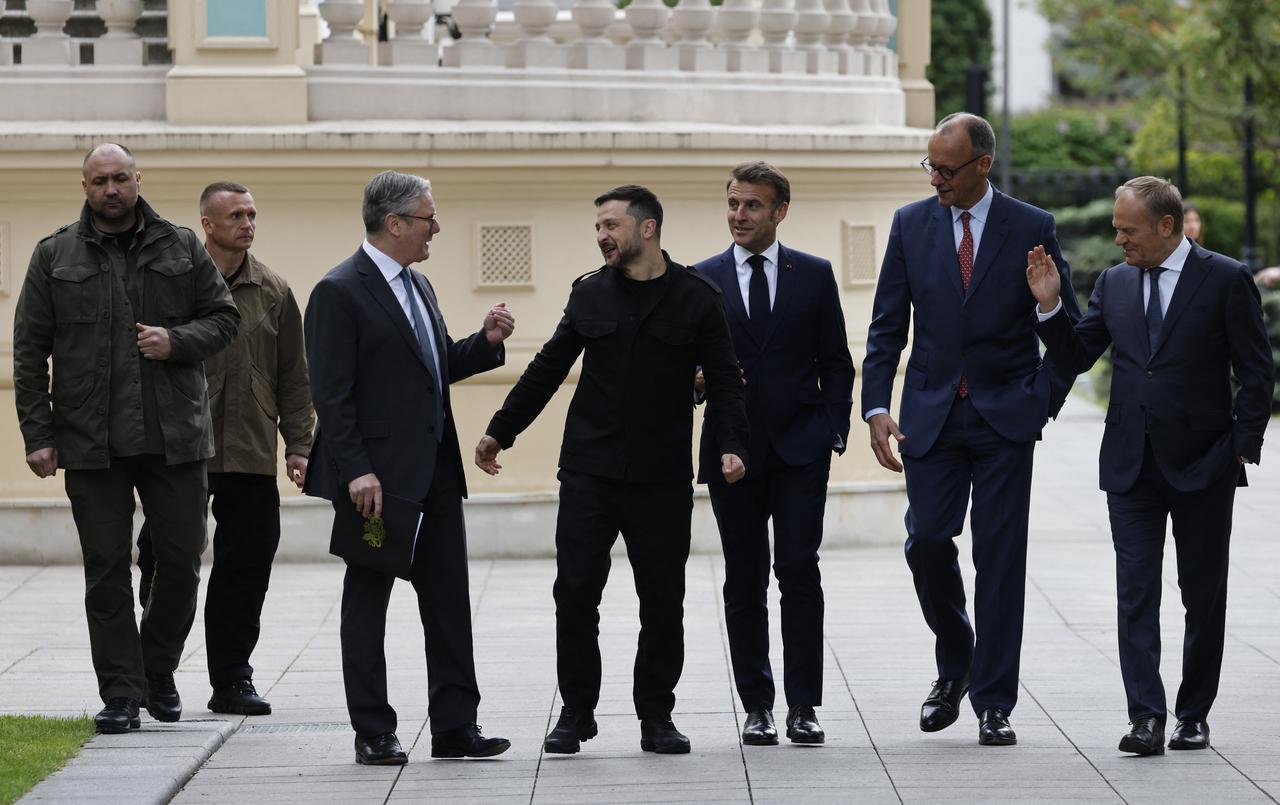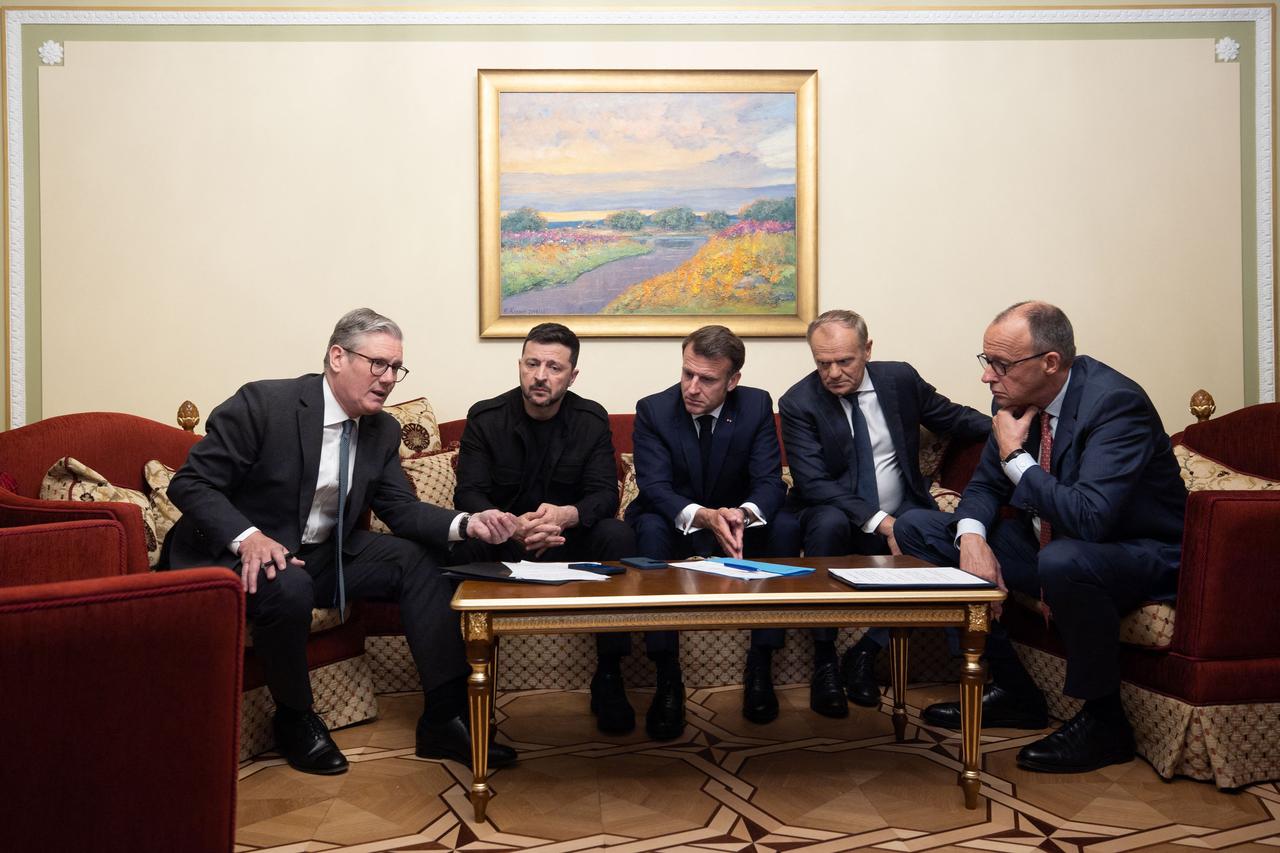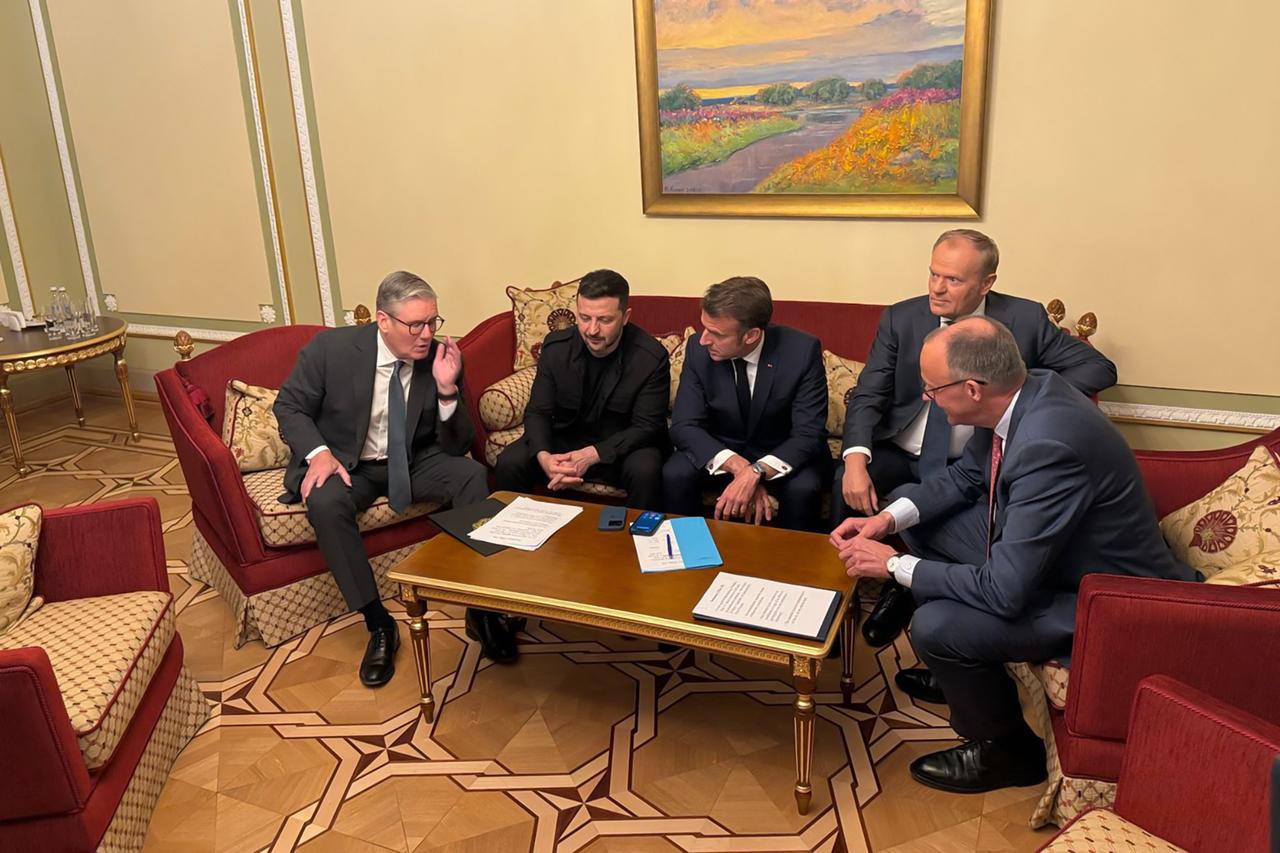
Ukraine and its European allies have agreed to call on Russia to accept a 30-day unconditional cease-fire beginning May 12, officials announced Saturday, marking a renewed diplomatic push to pause the three-year conflict.
The proposal emerged following high-level talks in Kyiv between Ukrainian President Volodymyr Zelenskyy and leaders from France, Britain, Germany, and Poland—a group known as "the coalition of the willing."

French President Emmanuel Macron, German Chancellor Friedrich Merz, British Prime Minister Keir Starmer, and Polish Prime Minister Donald Tusk made a rare joint visit to the Ukrainian capital, demonstrating European solidarity before presenting the truce proposal.
"Ukraine and all allies are ready for a full, unconditional ceasefire on land, air, and at sea for at least 30 days starting already on Monday," Ukrainian Foreign Minister Andriy Sybiha announced on social media after the meetings.
Following their discussions in Kyiv, the five leaders held a phone call with U.S. President Donald Trump to coordinate the peace effort, according to Ukrainian officials.
British Prime Minister Starmer emphasized the united front, stating, "The position we've now got to today is absolute unity across a whole range of countries around the world, including the United States, that there must be that 30-day unconditional cease-fire."

The European leaders issued a stern warning that failure by Moscow to accept the proposal would result in increased pressure.
"We will continue to increase our support for Ukraine. Until Russia agrees to an enduring ceasefire, we will ratchet up pressure on Russia's war machine," their joint statement declared. Macron specified that "massive sanctions" coordinated between Europeans and Americans would follow any violation of the proposed ceasefire.
The United States will play a central role in monitoring compliance with the truce, according to Macron, who said the ceasefire would pave the way for "immediate work and negotiations on parties involved to build a robust and lasting peace."

Moscow has shown little enthusiasm for the proposal. A similar initiative put forward by the United States and Ukraine in March was rejected by Russia.
In an interview with ABC News, Kremlin spokesman Dmitry Peskov said arms deliveries to Ukraine would need to stop before Russia would consider a ceasefire.
"Russian troops are advancing... in quite a confident way" on the front, Peskov added, suggesting a truce would benefit Ukraine while Russian forces currently hold the advantage.
The Kremlin also criticized Europe's "confrontational" stance toward Russia, with Peskov stating, "We hear contradictory statements from Europe. They are generally confrontational rather than oriented towards attempts to somehow resuscitate relations."
NATO Secretary General Mark Rutte has voiced support for the 30-day ceasefire initiative, stating it "must start with a 30-day unconditional ceasefire and continue with constant, concrete support." European leaders suggested that if the cease-fire takes hold, it could create space for direct negotiations between Ukraine and Russia. Zelenskyy has previously indicated he would only enter talks after a ceasefire is in effect.
The diplomatic effort comes as Russia now occupies approximately one-fifth of Ukrainian territory, including the Crimean Peninsula annexed in 2014, and has intensified attacks this spring.
The U.S. embassy in Kyiv issued a warning Friday about a possible "significant air attack" on Ukraine within the next several days, underscoring the urgency of diplomatic efforts.